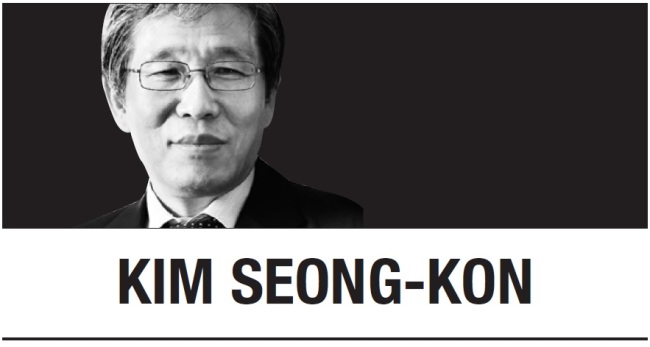 I was a big fan of O. Henry when I was young. His stories were fun and enlightening to read because they were full of wit and paradoxes, penetrating insights into life, and profound criticisms of his times. I was fascinated by his witty stories such as “The Cop and the Anthem,” “The Ransom of Red Chief,” and “Mammon and the Archer.”
I was a big fan of O. Henry when I was young. His stories were fun and enlightening to read because they were full of wit and paradoxes, penetrating insights into life, and profound criticisms of his times. I was fascinated by his witty stories such as “The Cop and the Anthem,” “The Ransom of Red Chief,” and “Mammon and the Archer.” At the same time, I was deeply moved by such touching stories as “The Last Leaf,” “The Green Door,” and “A Retrieved Reformation,” a story of an ex-convict safecracker, Jimmy Valentine. Whenever I was tired of reading the hefty tomes of Dostoevsky, I turned to O. Henry’s humorous stories for consolation.
When I moved to the US a few weeks ago, I bought two books: “The Collected Works of O. Henry” and Philip Pullman’s “His Dark Materials” trilogy. Of course, I had read them before, but I was sure they would be fun to reread. It is an old habit of mine to read books before going to bed and those books seemed to be perfect bedtime companions. “The Collected Stories of O. Henry” contained 50 stories that would entertain me for 50 nights at least, I thought.
However, when I opened the O. Henry book full of expectations, I was shocked. To my great surprise, I found it to be so boring that I could not read more than a couple of pages. How could this be possible? Perhaps the dim light was to blame? I replaced the lightbulb with a brighter one. It proved a little better, but the book still bored me. Then I realized that O. Henry’s stories were written in the early 20th century and his sensitivity has become old-fashioned now. The times have changed and his once brilliant stories no longer seem to fit in this era of digital media, even though we say classics are perennial and everlasting.
So I gave up O. Henry and picked up Pullman instead. When I opened Pullman’s “The Golden Compass,” the first book of the trilogy, I found it so mesmerizing that I could not put down the book and go to sleep. It was long after midnight, and yet, I was still reading the novel.
“The Subtle Knife,” the second book in the trilogy, was even more enthralling. The third book, “The Amber Spyglass,” which came out in 2000, was equally gripping. Pullman is our contemporary and therefore his sensitivity perfectly suits ours and as a result, his novels are page-turners.
Changes come inevitably as a new era begins. We cannot criticize young people for not reading Dostoevsky; they belong to the computer generation and Dostoevsky’s novels were the products of the 19th century when computers did not exist. It is not that Dostoevsky is not a great writer. It is just that today’s generation is simply not willing to read a voluminous book full of philosophical meditations. Their speed and sensitivity do not tolerate what they perceive as tedious, hefty books. If we are not aware of such changes and insist that young people read the works of Dostoevsky, we will be labeled as hopeless old-timers by the younger generation.
The same thing goes for some of our politicians whose mental clock is stuck in the 1980s and who therefore think they are still fighting for the democratization of South Korea. The world has changed drastically since the 1980s. The Cold War ended a long time ago, and we no longer live in an era when political ideologies are important. Communism has vanished from the earth once and for all. Even North Korea calls itself a socialist country. And the South has long been democratized. Old habits die hard, but they should stop fantasizing about North Korea and face the harsh reality. Instead of returning to the Sunshine Policy of 1998, they should come up with a new strategy to deal with North Korea that suits 2018.
If our political leaders are not capable of catching up with the recent revolutionary changes that have been taking place in the world, they will surely lead us in the wrong direction and eventually put the nation in harm’s way. Then, the outcome will be disastrous. It will be too late to turn back and we will suffer the consequences. The worst-case scenario is that our nation will fall into the wrong hands, and we will lose our sovereignty once again.
Reading O. Henry’s old-fashioned stories and Pullman’s innovative novels, I realized that I should recognize the vast changes and keep up with them. Thinking O. Henry’s stories were still innovative and fun to read turned out to be my fantasy after all.
I did not realize that my idol writer O. Henry had long been replaced by contemporary writers like Pullman and J.K. Rowling. With all due respect to O. Henry and Dostoevsky, I have decided to look at Pullman as my new idol. I cannot stay in the past forever.
Kim Seong-kon
Kim Seong-kon is a professor emeritus of English at Seoul National University and distinguished visiting professor at George Washington University. He can be reached at sukim@snu.ac.kr –Ed.


















![[Today’s K-pop] Treasure to publish magazine for debut anniversary](http://res.heraldm.com/phpwas/restmb_idxmake.php?idx=642&simg=/content/image/2024/07/26/20240726050551_0.jpg&u=)